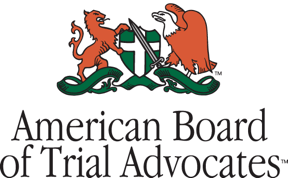Appellate Attorneys for North Carolina and Beyond
At Ward and Smith, P.A., our Appellate Practice Group provides skilled representation in administrative, civil, commercial, and domestic appeals.
Clients turn to us when the stakes are high and the outcome matters. Our team of appellate attorneys, led by two North Carolina Board of Legal Specialization Certified Appellate Specialists, leverages broad litigation experience and deep knowledge of appellate procedure to advocate for clients in North Carolina’s state appellate courts, as well as federal appeals courts nationwide.
We routinely handle appeals in the North Carolina Court of Appeals, the North Carolina Supreme Court, and the U.S. Court of Appeals for the Fourth Circuit. Our experience also extends to matters in the U.S. Court of Appeals for Ninth Circuit, the U.S. Court of Appeals for Federal Circuit, and the Supreme Court of the United States, reflecting our ability to tackle appeals on a national scale.
A successful appeal often begins long before a notice is filed. That’s why we’re frequently brought in while a case is still at trial—partnering with trial counsel on key motions, jury instructions, and issue preservation to ensure the record is ready for appellate review. When judgment is entered, clients rely on us to protect their wins or chart a strategic course to reversal.
Why Choose Ward and Smith, P.A. for Your Appeal
Proven Appellate Success: We have secured significant wins on appeal, including a landmark tax case victory at the North Carolina Supreme Court and a Fourth Circuit decision reinstating a vacated arbitration award. These outcomes protected multi-million-dollar interests for our clients. Our track record demonstrates the ability to overturn adverse trial results or preserve hard-fought wins on appeal.
Insight of Former Appellate Clerks: Our appellate team includes former federal and state appellate clerks who provide an insider’s perspective on how appellate judges approach cases. This first-hand experience gives us a keen understanding of appellate courts and what it takes to achieve results. It elevates our legal research, brief writing, and oral advocacy—ensuring that our arguments resonate with the judges who will decide the case.
Broad Subject-Matter Expertise: We handle appeals across a wide range of matters and industries. From intellectual property disputes and complex commercial litigation to agriculture regulatory issues, employment law, and whistleblower cases – our attorneys are adept at distilling complex records into compelling appellate arguments. Clients ranging from insured businesses to individual plaintiffs have trusted us with appeals involving patent and trademark issues, significant regulatory challenges, insurance coverage disputes, qui tam (whistleblower) claims, and more.
Collaborative Approach for Referrals: We are frequently retained as appellate counsel in cases originally handled by other trial attorneys. Whether engaged post-trial or brought in during litigation to ensure critical issues are preserved, we work seamlessly with referring lawyers. Trial counsel appreciate our ability to manage the intricate appellate process – from crafting superior briefs to delivering persuasive oral arguments – which allows them to focus on their core practice. We respect existing client relationships and work hard to make our referring attorneys shine through the successful resolution of the appeal.
Comprehensive Appellate Services
Appellate litigation is a distinct legal discipline and demands a unique skill set and strategic approach. Our team offers end-to-end appellate services that include:
Issue Preservation & Trial Support: Advising trial teams on framing legal issues and preserving the record for appeal, including by consulting on crucial motions or jury instructions before verdict.
Appellate Brief Writing: Reviewing and analyzing trial transcripts and court records in light of applicable law to develop the strongest appellate issues. Producing tightly reasoned, deeply researched appellate briefs that highlight key legal errors and align with the reviewing court’s analytical framework to clearly demonstrate how the trial court erred.
Oral Argument: Preparing for and delivering compelling oral arguments before appellate judges – distilling complex issues into clear, persuasive presentations and confidently answering judges’ questions.
Post-Decision Strategy: Navigating post-opinion options such as petitions for rehearing, en banc review, or further appeal. We also handle filings for discretionary review (including certiorari petitions to the U.S. Supreme Court) when a case presents important issues.
Amicus Briefs: Drafting amicus curiae (“friend of the court”) briefs on behalf of industry groups or associations in high-impact appeals. This not only supports important legal positions but also showcases our appellate expertise on issues of broad public importance.
Ready to Handle Your Appeal
From bet-the-company commercial disputes to high-impact regulatory questions, the appellate attorneys at Ward and Smith are here to help. We combine subject-matter fluency with the procedural sophistication needed to succeed on appeal.


















